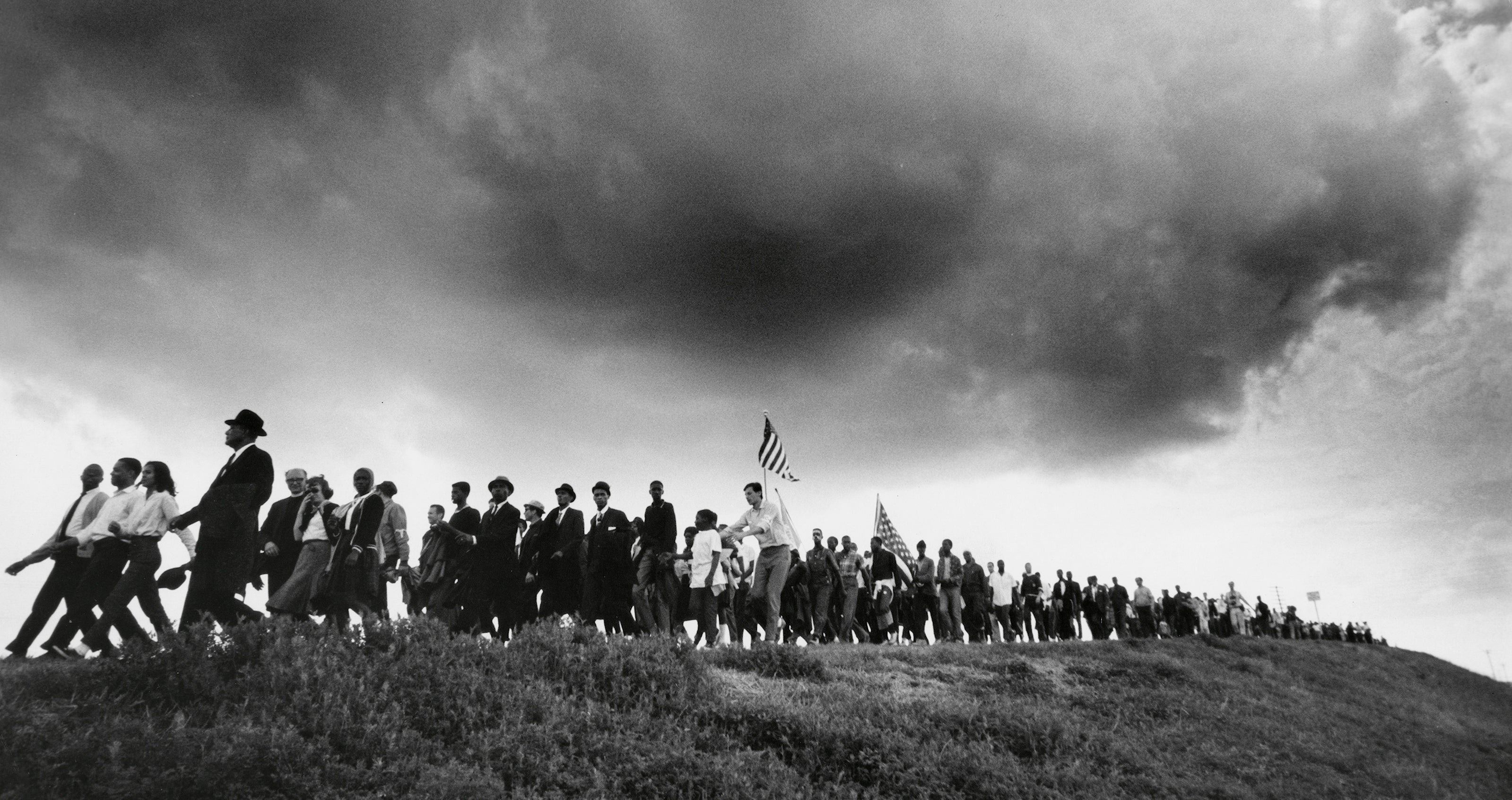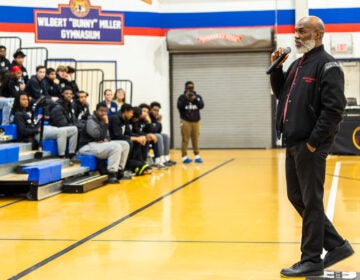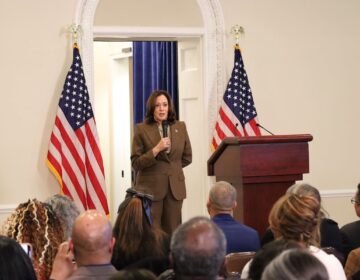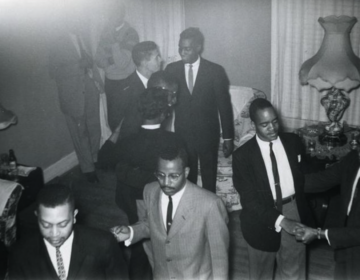Black History Month is not enough

A scene from Henry Hampton’s documentary “Eyes on the Prize.”
It’s that time of year again, Black History Month, the month that brings attention to the American history that doesn’t get much “air play,” so the shortest month will do. I personally happen to be in a it’s-Black-History-Month-and-I’m-just-black-living-in-this-history state of mind right now.
I just finished listening to “The New Jim Crow” by Michelle Alexander, and I’m finishing up my mom’s book about her grandparents during the Great Migration era (“My Dearest Minnie“) as well as reading “The Souls of Black Folk” by W.E.B. Du Bois. The continuation of my education.
I was, as people say now, “woke” growing up, primarily because my mom did not let us not know. We went to all the history things in Ohio, and when we would come to Philly to visit family we’d stop in for a refresher on our history both black and traditional American, i.e., Betsy Ross and Ben.
Whenever I had a free book report or research project, my mom would always suggest a black person or event in black history, or native American history. I did reports on Mary McCleod Bethune, Zora Neale Hurston, the Trail of Tears.
One year my mom bought a birthday cake for Martin Luther King Jr. to teach a few local at-risk youngsters and friends about his legacy. You can get a kid to listen when there is cake involved. Being about 9 years old, I was not of the age to see the movie “Malcolm X” by Spike Lee, but my mom thought it was important, and during one of our visits to Philly we went to see the movie as a family.
I think my grandparents were nervous about me being so young, but to this day I love that movie. I also love “American Gangster,” so it may be a Denzel thing. I don’t know.
We had the complete “Eyes on the Prize” VHS set. There were days I would choose to watch that by myself on a Saturday afternoon. My middle brother’s favorite movie for a long time was “Glory.” I’d be in my room at the top of the steps and hear the part towards the end when the men were gathered around humming in the old negro way that somehow strengthened each other and I knew who was watching that VHS for the 50th time.
I had a lot of historical knowledge passed down to me. My mom talked a lot and shared those things while we went on road trips. I participated in multiple Black History Month plays and events at the church.
Yet, for some reason, today I’m sitting here feeling like I know nothing, and I’m not sure what to do.
Because I have a strong background, that is a hard thing to realize. It is also hard to come to some form of reconciliation. We had a black president for eight years, there’s more diversity in media and the arts, generally it seems that people have more diversity in their social circles. But we are reminded all the time that this country is not any kind of post-racial utopia: Charleston, Ferguson, “I can’t breathe,” the wall, Trump’s Muslim ban, and so on.
Being a black woman who has deep connections to both “sides” of these struggles has left me paralyzed in some ways. The idea that we live in a “post racial” society has blown up in our faces. I’m still living in it so I can’t turn a blind eye to it all. What do I do?
I spent a lot of time in college trying to get people to understand what the problem is. Even 12 years removed, I still have people I once called good friends who don’t get it. Being in an age of “I don’t have to if I don’t want to,” I don’t feel like addressing that racist group text message I received. I’d rather delete.
Then there are new people and people who are starting to see what I was saying before in the light of their own racist fires, and they don’t like it anymore.
I’m not a marcher. I’m not an active protester. I’m not in politics or able to be on the front lines of these issues that do matter. Yet, I still have to live here because, contrary to some opinions, this land is my land and yours. I have nowhere else to go.
I did a DNA test and found that, although I’m from Africa and a few other places, I’m really from pretty much the whole West Coast. I was hoping I could go to one country, one tribe, and find my family. So America is my home. Now I’m stuck in this cloud trying to figure out how to make myself at home.
With education there is responsibility, and I’m being challenged by that with every book and every PBS special and every TV show I watch that talks about race. I have my words on a page, I have the Internet, and I have my comedy. It doesn’t feel like enough.
I feel like the man at the end of “Schindler’s List” (spoiler alert), crying that he could not save more. The difference is it’s not over.
—
Cecily Alexandria is a stand-up comedian and storyteller in Philadelphia.
WHYY is your source for fact-based, in-depth journalism and information. As a nonprofit organization, we rely on financial support from readers like you. Please give today.




